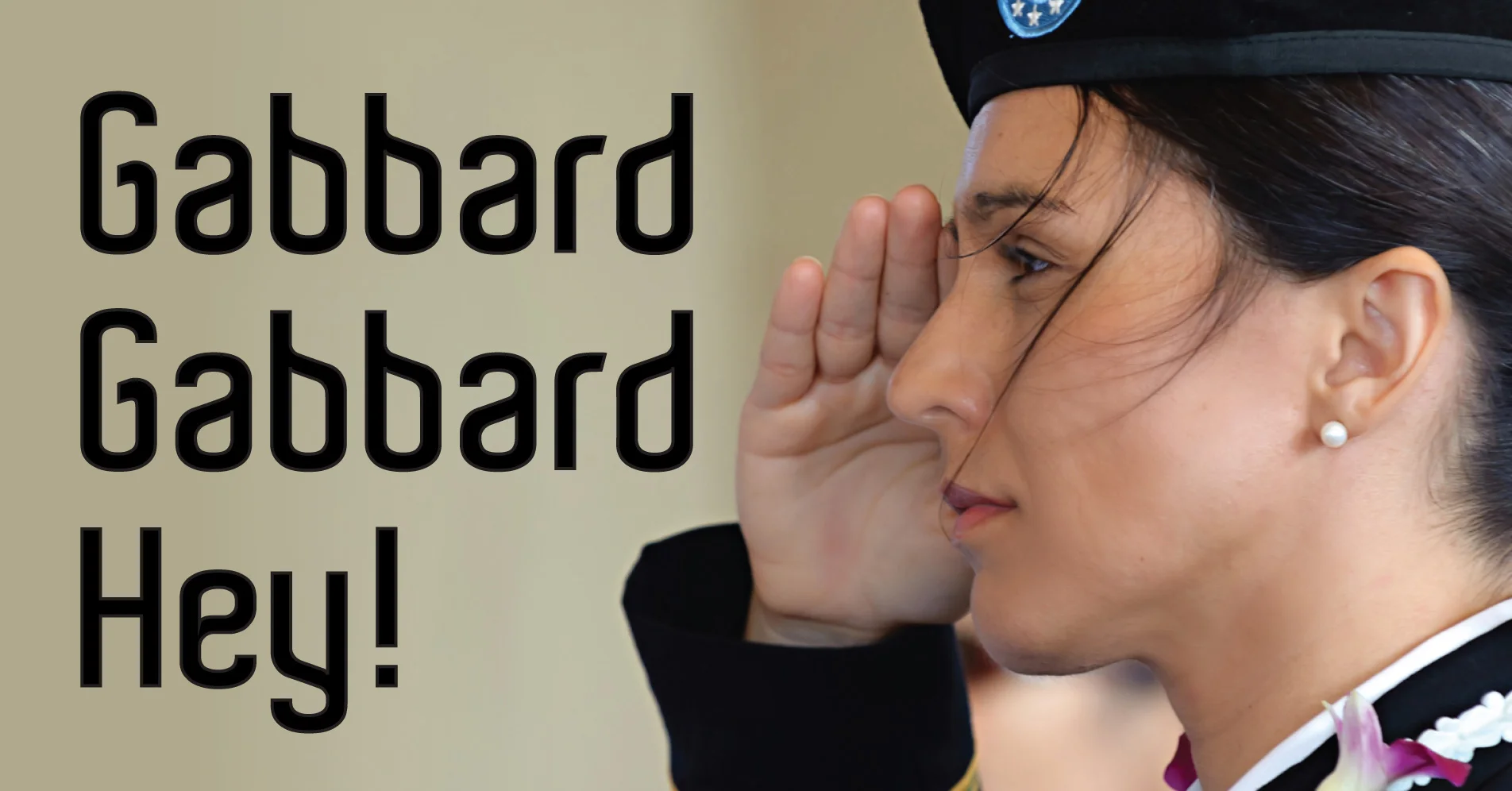I wanted to share and amplify this Talking Points Memo post about some recent comments by Congressperson Tulsi Gabbard. The issue of civilian control over the U.S. military has been rising to the foreground lately in light of Donald Trump's multiple appointments of former generals to various government posts, including a cabinet-level position in the case of his Defense Secretary nominee. I totally agree with Josh Marshall that Gabbard's suggestion that military leaders are more patriotic and more attuned to the national interest than civilians is deeply unsettling, and is indeed the sort of talk you'd expect to hear in a banana republic.
Donald Trump's selection of so many military leaders to guide his national security policy should worry us in the first place because it suggests that militaristic approaches to the world will be favored over other approaches. U.S. foreign policy is already far, far too militarized, and it's troubling to think that this could get even worse. This is also a major problem to see given Donald Trump's existing ignorance of foreign and military affairs. It's not like he has his own strong base of knowledge to bring to the mix, and surrounding himself with military men means he'll be given a smaller range of options around how to form policy.
The two points I've just made are pretty broad. But more important than both of these to understanding the problem of Trump's overreliance on generals for guidance is the specific context in which Trump is making this choice. Since 9/11, the United States has been engaged in an ceaseless, victory-less war around the world against terrorism. A strong, and I believe overwhelming, case can be made that the United States has amplified the Islamic terrorist threat through its militarized and often incompetent response to 9/11; the central piece of evidence is the invasion of Iraq, a country not linked to 9/11 and barely linked to terrorism, and whose botched occupation resulted in a supercharging of terrorist recruiting efforts and the destabilization of a major chunk of the Middle East. In both Iraq and many, many other place we have spent a decade and a half basically proving, beyond the shadow of a reasonable doubt, that there is no military solution to mitigating or theoretically ending terrorist threats to the United States.
Central to the bloody, unnecessary proving of this obvious point has been a broad deference to the military brass to run our wars, particularly in the age of Obama. But the overwhelming fact of our situation is that military solutions have failed; or rather, if there are military solutions, they are too bloody and expensive for us to contemplate, or to find popular support to implement.
And so we have long been caught in an unhealthy cycle, in which a disengaged public lauds the military for doing its dangerous work and keeping the country safe, to the point that polls of the most trusted government institutions regularly show the military at the top of the list. I very specifically am calling this cycle unhealthy because it is partly based on a relief in the U.S. population that someone else is out there risking their lives for our country. This combination of admiration and guilt has in turn made it difficult to contemplate any criticism of the military. How could we dare, when they're the ones risking their lives. And of course there is a lot of good reason for this admiration; the soldiers, sailors, airmen, and Marines who have served our country and fought in our wars are in truth performing selflessly. To a lesser extent, this syndrome of guilt and gratitude has also confused people on the basic point that you can support the troops while also being critical of a militarized foreign policy; in fact, holding both these things to be true, and not in contradiction, is essential to a healthily-functioning democracy.
But something subtler has also happened, and this is where I will link things back to Representative Gabbard's comments: while the adulation of the military, through honest thankfulness and unacknowledged guilty, has in reality been earned by the rank and file of the military, those who do the fighting and the dying, the military leadership has indirectly gathered status and approbation through this worshipful attitude. I'll try to say this a little more directly: the generals and admirals who have often misdirected our recent wars and other military action have to a great sense been able to escape public criticism, because they're buffered by a broad public admiration of front-line soldiers.
Tulsi Gabbard's comments only strengthen my sense that something untoward is going on in Americans' attitudes to the military, something that she draws from and builds on in her comments. There is no doubt that members of the military are admirably patriotic; but who's to say they're more patriotic than firefighters, or nurses, or teachers? Gabbard seems to suggest that risking your life is the ultimate gauge of patriotism. But even if that were the case, it's not the generals who have put their lives on the line; it's the men and women under their commands.
Let's not forget what the purpose of the military is: to win wars and kill people. To confuse this specific skill set with a broader competence, whether through an honest admiration of the military's patriotism or camaraderie, is a dangerous delusion for a democracy. And for Donald Trump to be overly reliant on a group of men whose ultimate profession is the exercise of violence, rather than a more holistic approach to maintaining U.S. security, is a very bad sign indeed.

